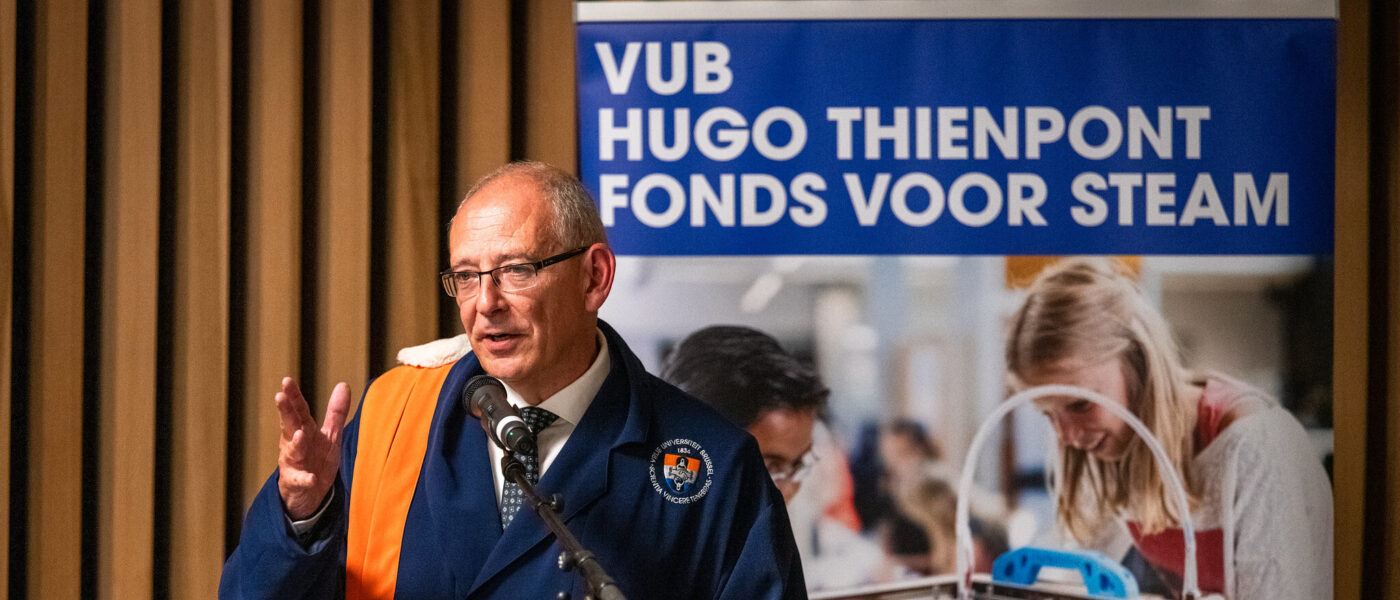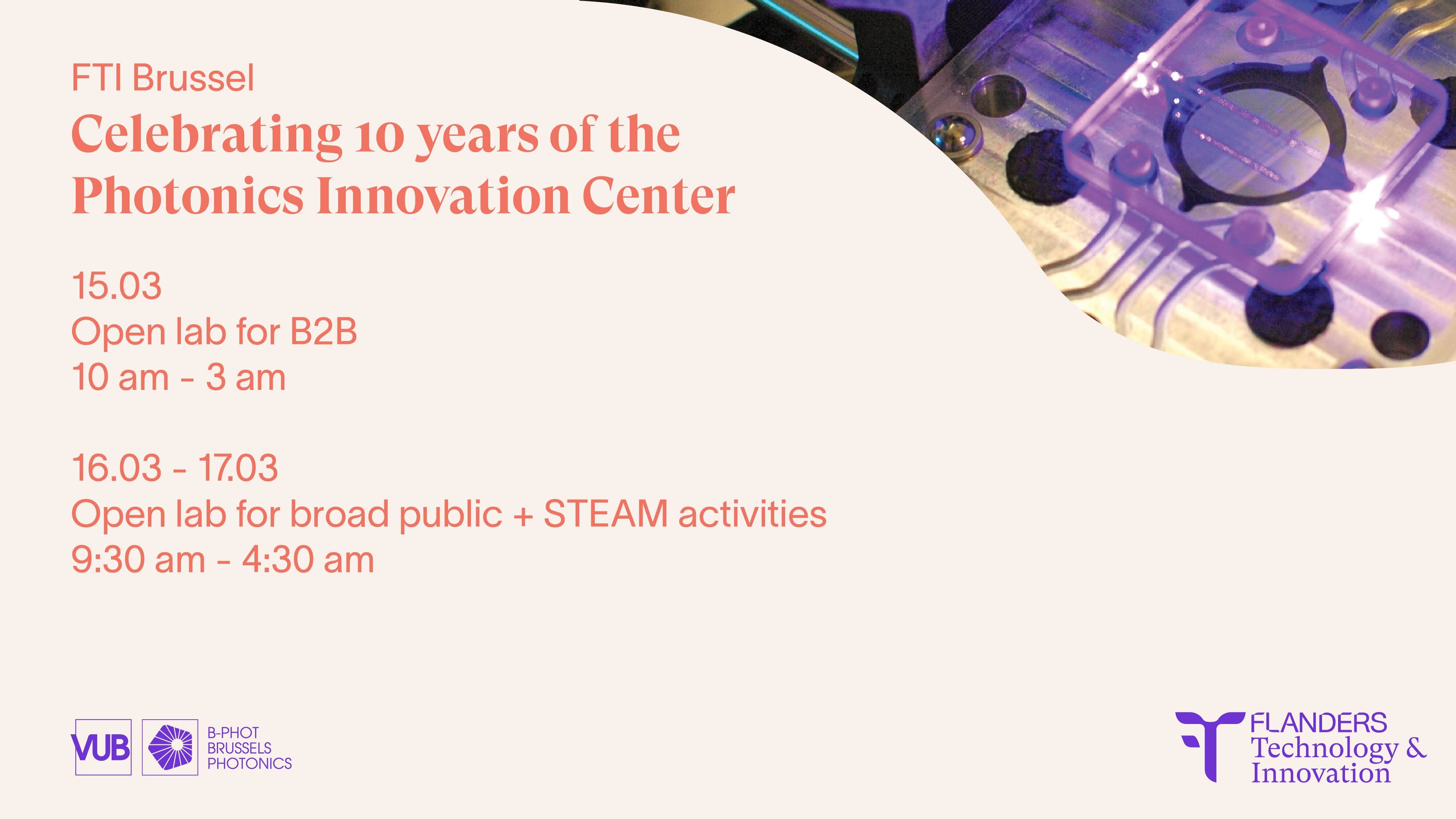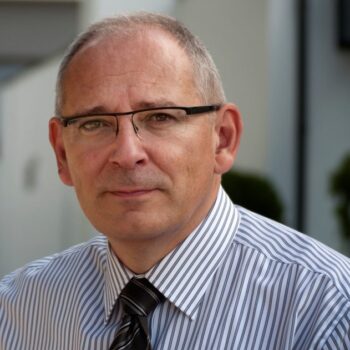Hugo Thienpont on Flanders Technology & Innovation: "It's time we dare to say how good we are"

The Vrije Universiteit Brussel is throwing its weight behind the Brussels segment of the Flanders Technology & Innovation festival, running from Friday, March 15 to Friday, March 22.
Vice Rector for Innovation & Valorization and B-PHOT Director Hugo Thienpont looks forward to the event with an interview for VUB News: "Artificial intelligence, robotics, photonics, biotechnology, and sustainable energy are crucial areas where the VUB excels."
VUB: "A hands-on festival of Flanders Technology & Innovation in Brussels: Besides your own Photonics Campus in Gooik, where else would you go?"
"Of course, you'll find me at the Photonics Campus. But I would also definitely visit the VUB Main Campus because there are many other important elements related to technology and innovation. That includes robotics, biotechnology, sustainable energy, and artificial intelligence. These are key technologies that are essential for Flanders and Europe. It demonstrates that the VUB has a lot of unique offerings in the field of technology and innovation. But also at the Green Energy Park in Zellik, at UZ Brussels, and at the FARI - AI for the Common Good Institute in the heart of Brussels, there are many interesting innovations to discover."
VUB: "Why is the festival being held?"
Prof. Thienpont: "It's important to explain to the widest possible audience that you need technology and innovation to tackle the major problems of the future: energy issues, climate change, pollution, and health."
VUB: "Why does Technology and Innovation need the support of the general public?"
Prof. Thienpont: "The general public rightly wonders what happens to their tax money and why so much money needs to go into fundamental and applied research. Well, our research, technologies, and innovation ensure that the Flemish can maintain their health, energy supply, mobility, data communication, comfort, and many other crucial factors. And, of course, this sector provides a lot of jobs for Flemish people. FTI Brussels also focuses on young people. We see a steady decrease in the number of students choosing science, technology, engineering, and mathematics (STEM) disciplines, which are necessary for technology and innovation. In this way, FTI can rekindle and motivate our young people for STEM education so that we also have innovation talent available locally in the future."
VUB: "Are we not proud enough of our technology and innovation?"
Prof. Thienpont: "With our Flemish technology and innovation, we are at the top in Europe. But Flemish people are reserved. We don't step onto the podium and shout about how good we are. We should do that a bit more because we should be proud of our achievements. Moreover, this could also work out well for us in terms of more European cooperation and new fundraising."
VUB: "What is the benefit for the VUB?"
Prof. Thienpont: "The VUB can also put its research performance more in the spotlight. In my view, we are very successful as an innovation university. The VUB scores incredibly well in the Times Higher Education Ranking in terms of innovation. This is measured in patents, spin-offs, and money we raise through European projects. We are also at the top in the figures of the Department of Economy, Science, and Innovation of the Flemish Government. And recently, it turned out that we belong to the top 20 universities in Europe that attract the most research funding from the EU. Per researcher, we are even the best-performing university in Flanders. These are objective figures, and we should showcase them at events like FTI Brussels. It's time we dare to say how good we are."
VUB: "You founded the Photonics Campus. What is crucial to be successful in technology and innovation as a researcher?"
Prof. Thienpont: "Originally, we were a research group that only did fundamental research. That's very nice, but if you really want to make a difference, you also need to look for applications. You can come up with those yourself, but you can also listen to what companies need. With such demand-driven research, you make the transition from fundamental to applied research. That doesn't mean you passively follow the market, because you choose yourself. Crucial is that you have your own technology. Then you can apply the research and even scale it up, so that you can bring it closer to the market together with companies. You can then show that the technology is ready to be applied. Europe is also spending more and more money on these so-called higher technology readiness levels. If our research groups can each grab a substantial piece of that, it will soon become a whole loaf for our university."


